EHFSA: Ecton Hill Field Studies Association
Ecton Hill Field Studies Association organises activities for School, College and University groups, Geological Societies, U3A and other groups studying Geology, Science or History of Science/Technology and general interest groups.
All activities include an underground visit to see the mineralisation, and understand how the miners were able to make the mine such a profitable enterprise. Most activities include a hill walk to see evidence of past mining techniques and the engine house, built to install the Boulton and Watt steam engine.
A record of our recent activities is provided in the Newsletter .
CURRICULUM ACTIVITIES
Curriculum Activities are curriculum-related, structured events lasting a full day.
A Level Chemistry Activity Days and KS4 Chemistry Activity Days also include some practical Chemistry, relating to the minerals occurring in the Ecton ore body.
The A Level Geology Activity Days generally concentrate on field work techniques, mineralisation and engineering geology appropriate to the specifications of both the OCR and the WJEC.
OTHER ACTIVITIES
Other School Activities for KS2 pupils upwards can be arranged for general interest with the opportunity to undertake Science/Geology-based activities or with an emphasis on specific aspects of the history and geology of the Ecton Mine. These school activities cover many aspects of the National Curriculum at KS2, although the programme is more flexible than the structured Curriculum Activity days and the day is usually of shorter duration.
Activities for General or Special Interest groups are available for any type of group of adults, or adults with children. Visitors can enjoy an underground visit, hear the fascinating story of the historic Ecton mines, and how science was developed and applied to the winning of an important metal – copper. These activities are tailored to suit the interests of the visiting group.
UNIVERSITY LEVEL
Several University Level groups regularly visit Ecton to add a new dimension to their programmes. The site provides obvious interest for Chemistry, Geology, Mining and Minerals Processing groups. PGCE Tutors use Ecton for their students to plan an off-site visit for school students and to appreciate the importance of fieldwork in motivating children and improving learning in Science.
University Tutors can either leave the leadership of such courses to the EHFSA tutors or take the lead themselves.
FURTHER INFORMATION
For information and assistance with activites please contact Susan Wilkinson on SWilkin799@aol.com or 01732 456997 – or if all else fails, contact Bob Thompson on lesrob42@gmail.com 01889 882363



 The powder house, where dangerous explosives were stored. This small shed was placed well away from other buildings and was erected in 1884. The interior was originally lined with wooden panels as an added precaution against accidentally creating sparks.
The powder house, where dangerous explosives were stored. This small shed was placed well away from other buildings and was erected in 1884. The interior was originally lined with wooden panels as an added precaution against accidentally creating sparks.

 was lowered on one side and it was converted to a field barn. The steam engine was located in the far half of the building, while its boiler was in the near half. A short distance upslope there was a small reservoir pond for the boilers fed by water brought up from the mine.
was lowered on one side and it was converted to a field barn. The steam engine was located in the far half of the building, while its boiler was in the near half. A short distance upslope there was a small reservoir pond for the boilers fed by water brought up from the mine.


 In the 1760s-80s the internationally important Deep Ecton Copper Mine made a fortune for the Dukes of Devonshire. The first copper was mined here long before, in the Bronze Age over 3,500 years ago. The Dukes, who owned northern and western parts of the hill, had their mines worked in-house for over 50 years from 1760. From the 1820s private mining companies embarked on a fruitless search for further rich ore deposits. The mines were finally abandoned in 1889. While the 19th century ventures lost investors’ money, with them at best only finding other peoples’ leavings, they kept local miners in work for decades.
In the 1760s-80s the internationally important Deep Ecton Copper Mine made a fortune for the Dukes of Devonshire. The first copper was mined here long before, in the Bronze Age over 3,500 years ago. The Dukes, who owned northern and western parts of the hill, had their mines worked in-house for over 50 years from 1760. From the 1820s private mining companies embarked on a fruitless search for further rich ore deposits. The mines were finally abandoned in 1889. While the 19th century ventures lost investors’ money, with them at best only finding other peoples’ leavings, they kept local miners in work for decades.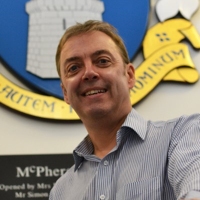
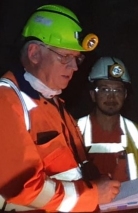
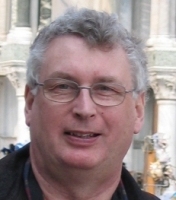
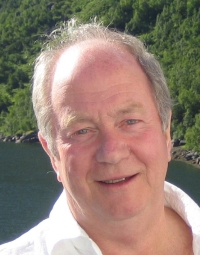
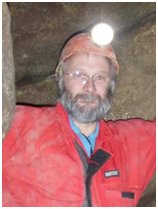 I am an exploration and mining geologist (C. Geol) with over 25 years of experience in the deep geological disposal of radioactive waste and 7 years of experience of exploration, environmental impact assessment and mining feasibility for the Kayelekera uranium deposit in Northern Malawi, Africa. I retired from the British Geological Survey in 2016 and am currently a member of the Government’s Committee on Radioactive Waste Disposal. I undertook a PhD on caves and mines in the Peak District and, as an active caver and mine explorer, have been studying the underground world of the Peak District since the mid 1970’s, including the mines of the Ecton Area. I am a director (editor) of the Peak District Mines Historical Society and the mine manager of their Temple Mine in Matlock Bath.
I am an exploration and mining geologist (C. Geol) with over 25 years of experience in the deep geological disposal of radioactive waste and 7 years of experience of exploration, environmental impact assessment and mining feasibility for the Kayelekera uranium deposit in Northern Malawi, Africa. I retired from the British Geological Survey in 2016 and am currently a member of the Government’s Committee on Radioactive Waste Disposal. I undertook a PhD on caves and mines in the Peak District and, as an active caver and mine explorer, have been studying the underground world of the Peak District since the mid 1970’s, including the mines of the Ecton Area. I am a director (editor) of the Peak District Mines Historical Society and the mine manager of their Temple Mine in Matlock Bath.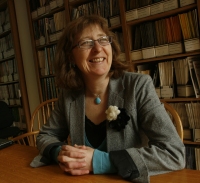 mongst geologists and others involved in the application of geoscience, particularly through the promotion of professional titles such as CEng, CGeol, and EurGeol. She has served on the Council of the Geological Society of London and is a past President of the European Federation of Geologists. For many years, she has been a member of the Pan European Reserves and Resources Reporting Committee (PERC).
mongst geologists and others involved in the application of geoscience, particularly through the promotion of professional titles such as CEng, CGeol, and EurGeol. She has served on the Council of the Geological Society of London and is a past President of the European Federation of Geologists. For many years, she has been a member of the Pan European Reserves and Resources Reporting Committee (PERC).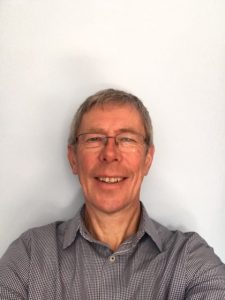 Phil in Organic Chemistry, Nottingham Uni 1977-79, awarded 1981
Phil in Organic Chemistry, Nottingham Uni 1977-79, awarded 1981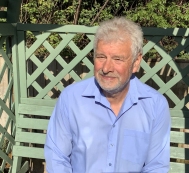 I am a geoscientist with more than 45 years of experience. After working as a mine geologist in the Yorkshire Coalfield for 12 years, I moved on to seismic exploration for coal, potash and other minerals focussing on seismic interpretation and delineating geological structure to aid mine planning. My prospect experience includes projects in UK, Spain, Turkey, Australia, Africa, Argentina and Canada.
I am a geoscientist with more than 45 years of experience. After working as a mine geologist in the Yorkshire Coalfield for 12 years, I moved on to seismic exploration for coal, potash and other minerals focussing on seismic interpretation and delineating geological structure to aid mine planning. My prospect experience includes projects in UK, Spain, Turkey, Australia, Africa, Argentina and Canada.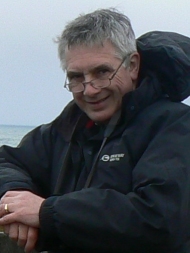 ng and engineering around the world. Although I am now retired I continue to hold Board appointments with national and international regulatory and standards organisations which I find professionally stimulating and thoroughly rewarding.
ng and engineering around the world. Although I am now retired I continue to hold Board appointments with national and international regulatory and standards organisations which I find professionally stimulating and thoroughly rewarding.